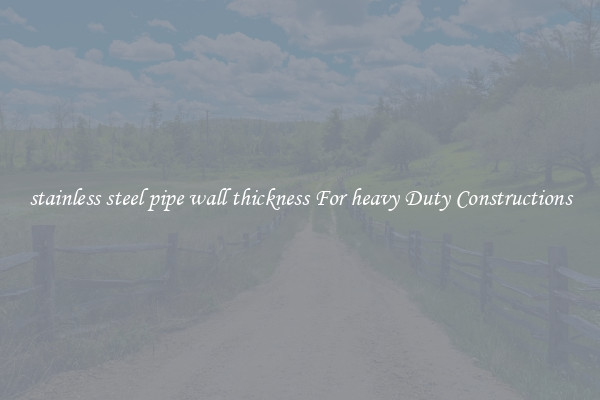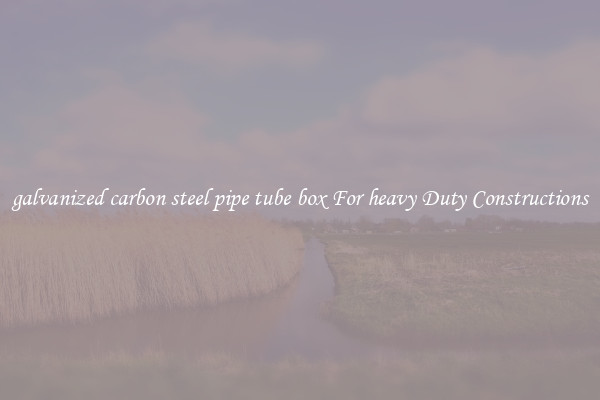stainless steel pipe wall thickness For heavy Duty Constructions
Stainless Steel Pipe Wall Thickness for Heavy-Duty Constructions

When it comes to heavy-duty constructions, such as industrial applications or infrastructure projects, choosing the right materials is of utmost importance. One crucial factor to consider is the wall thickness of stainless steel pipes. The wall thickness determines the strength, durability, and overall performance of the pipe, making it a critical specification in heavy-duty constructions.
Stainless steel pipes are widely used in heavy-duty applications due to their superior qualities. They possess excellent corrosion resistance, high strength, and a long lifespan, making them suitable for extreme operating conditions. However, the wall thickness of stainless steel pipes plays a significant role in determining their suitability for heavy-duty use.
The wall thickness of stainless steel pipes is measured in millimeters or inches and refers to the distance between the inside and the outside diameter of the pipe. The wall thickness impacts various aspects of the pipe's performance, including its ability to withstand pressure, bending, and external stress.
In heavy-duty constructions, where the pipes are subjected to high pressure or face constant stress, it is crucial to choose stainless steel pipes with an adequate wall thickness. Thicker walls provide enhanced strength and durability, ensuring the pipes can handle the demanding nature of heavy-duty applications.
The wall thickness requirement for heavy-duty constructions can vary based on the specific project and its requirements. However, it is generally recommended to opt for stainless steel pipes with a wall thickness not less than 2mm (0.08 inches).
Thicker walls offer several advantages in heavy-duty constructions. Firstly, they enhance the pipe's resistance to internal and external pressure, ensuring it can contain and transport fluids or gases effectively. They also provide better resistance against bending and buckling, making the pipes more resilient to external stressors and reducing the risk of failure.
Additionally, thicker-walled stainless steel pipes offer increased corrosion resistance. The additional thickness acts as an extra barrier against the corrosive elements, protecting the pipe and extending its lifespan, especially in harsh environments or highly corrosive applications.
Furthermore, thicker walls contribute to noise reduction and vibration damping. In heavy-duty constructions, where machinery or fluid flow might generate excessive noise or vibrations, thicker-walled pipes help to dampen these disturbances, improving the overall working environment.
In conclusion, the wall thickness of stainless steel pipes is a crucial specification in heavy-duty constructions. Choosing pipes with an adequate wall thickness ensures the reliability, strength, and durability necessary for demanding applications. Thicker-walled pipes offer enhanced resistance to pressure, bending, corrosion, and noise/vibration, making them ideal for heavy-duty use. When selecting stainless steel pipes for heavy-duty constructions, it is recommended to opt for a wall thickness not less than 2mm (0.08 inches) to ensure optimal performance and longevity.

View details

View details

View details

View details








